What is Sleep Apnea? Concord
Understand Sleep Apnea & How It Impacts Your Wellbeing
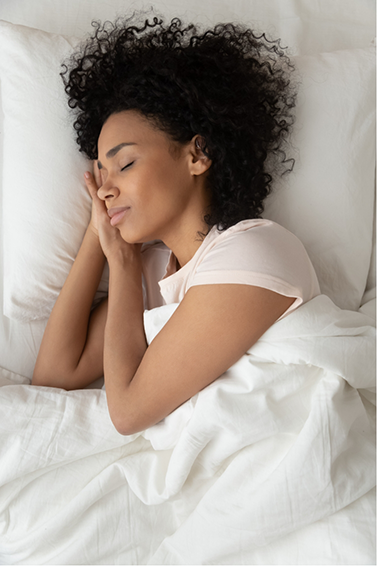
If you’re constantly going to bed early enough to get your full eight hours of sleep each night, but you still wake up feeling exhausted, you might feel puzzled. What you might not realize is that these symptoms could be due to sleep apnea, which is a fairly common sleeping and airway disorder. This condition doesn’t just cause loud snoring, though; it can also prevent you from getting the quality sleep you need to keep your overall health on the right track. This means that treatment is always warranted, and our team is here to help. You can learn more about sleep apnea by reading below, but if you suspect that you may be dealing with the condition, we encourage you to call us here at New Hampshire Airway Wellness Center today to schedule a consultation with Dr. Homsi.
Why Choose New Hampshire Airway Wellness Center for Sleep Apnea Treatment?
- Dedicated Sleep Dentist with Several Years of Experience
- Personalized Treatment Solutions for Every Patient
- Insurance Accepted and Financing Available
The Basics of Airway Health & Sleep Apnea
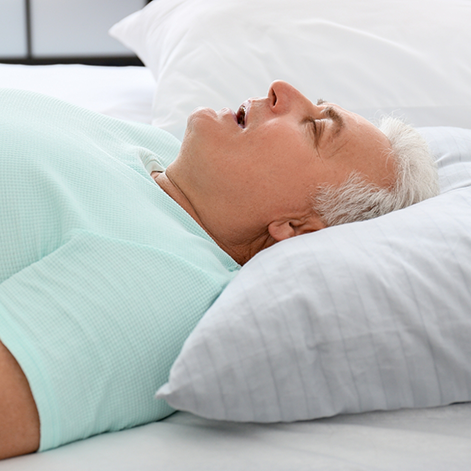
Sleep apnea refers to a condition that causes patients to stop breathing while they’re asleep. These episodes, called “apneas,” can occur dozens or even hundreds of times in a given night.
There are three main types of sleep apnea: obstructive, complex, and central. However, obstructive tends to be the most common type by a large margin. It’s caused by obstruction that occurs within the mouth and throat that impedes the natural flow of air. Central sleep apnea stems from a miscommunication between the brain and the respiratory system. Complex sleep apnea is essentially a combination of these two types.
Learn More About Obstructive Sleep Apnea
What Causes Sleep Apnea?
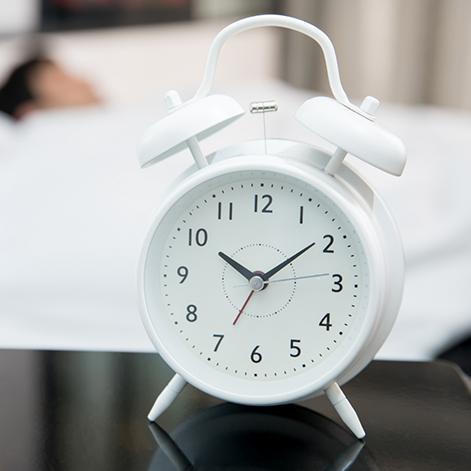
If you or a loved one has noticed that your breathing seems to repeatedly stop and restart while you’re asleep, chances are, you’re suffering from sleep apnea. These interruptions are often due to soft tissues in the mouth or throat collapsing. When the body’s breathing is interrupted, the brain must stir it from sleep in order to restore proper airflow—and this cycle repeats over and over again.
There are numerous reasons why this can occur, but a few of the most common risk factors for the condition include fat accumulation around the neck, drinking alcohol before bed, genetics, age, and different medical conditions.
Common Sleep Apnea Symptoms
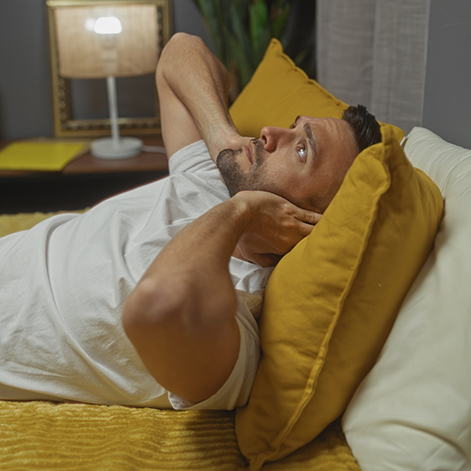
You might have sleep apnea if any of these symptoms sound familiar:
- You have been told that you often snore loudly.
- People have noticed that your breathing sometimes stops while you’re asleep.
- You occasionally wake up gasping or choking.
- You feel tired despite getting about 8 hours of sleep most nights.
- You frequently have trouble focusing or remembering.
- You are experiencing unexplained mood changes (with depression being a common example).
- You have high blood pressure (hypertension).
-
You often wake up with a headache, jaw pain, or sore throat.
The Dangers of Airway Conditions Like Sleep Apnea
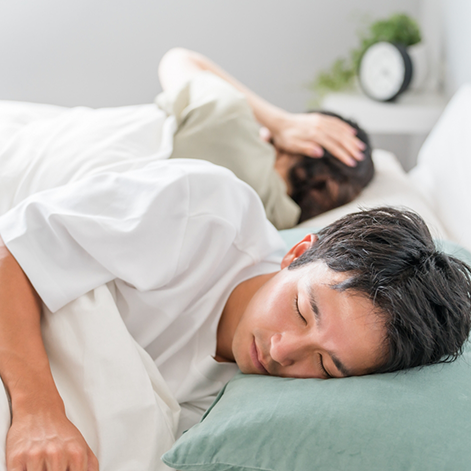
Sleep is critical to absolutely every aspect of your body’s health, including mental health, respiratory health, cardiovascular health, and metabolic health. This means that if your body’s normal sleep routine is disrupted by airway problems, it can potentially throw all of your systems into disarray. This is why sleep apnea has been linked to dozens of serious health problems, such as:
- Heart disease
- High blood pressure
- Stroke
- Diabetes
- Obesity, including unexplained weight gain and inability to lose weight
- Dementia, including Alzheimer’s disease
- Memory problems
- Depression and other mood disorders
- Sexual dysfunction
Many of these health conditions even have the potential to turn deadly, which is why people with untreated sleep apnea also have up to a 46% higher chance of premature death. Needless to say, it’s a condition that might seem innocent enough, but can truly have terrible consequences.
How is Sleep Apnea Diagnosed?
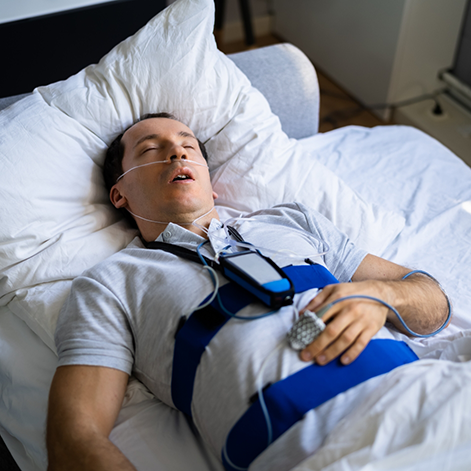
In order to receive a formal sleep apnea diagnosis, you will need to schedule what’s known as a sleep study, sometimes called a polysomnogram. Sleep studies can be conducted either in a sleep laboratory or clinic, or at home using an ambulatory sleep study device. In both cases, the test is completely painless and non-invasive, and it typically only takes one full night to collect the data needed to diagnose your sleep-airway condition.
Once you’ve been tested, the results are carefully analyzed by a sleep physician who can provide you with a definitive diagnosis. From there, it’s simply a matter of meeting with our team and letting us help you find the treatment that’s right for you!
Learn More About Sleep Testing
How is Sleep Apnea Treated?
The most common way of treating sleep apnea, and what most people imagine when discussing the condition, is through the use of a CPAP machine. This method involves wearing a mask over the mouth that delivers oxygen through a hose to ensure you receive adequate airflow during the night. However, many patients aren’t able to effectively or comfortably use a CPAP machine, which is why alternative methods involving custom-made oral appliances have risen in popularity. These small, handy devices are worn to bed and can greatly reduce the chances of your breathing being interrupted, since they help to support your airway and keep it unobstructed.
Learn More About Oral Appliances
Benefits of Sleep Apnea Treatment
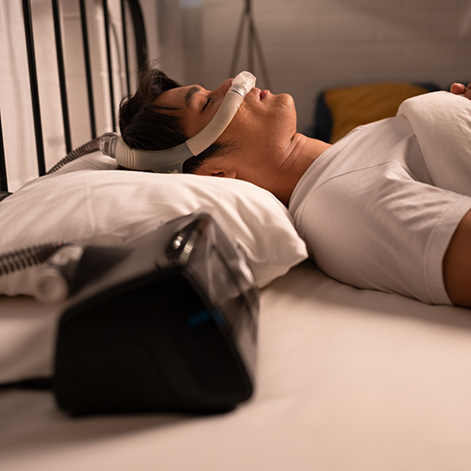
Seeking sleep apnea treatment doesn’t just mean better sleep—it also means a greatly improved overall quality of life. Most notably, with quality rest, you’ll find yourself with more energy throughout the day; you’ll be less likely to fall asleep at work or school, while driving, or while watching television, and that 4 pm nap that used to feel so necessary won’t be needed at all. You also might find yourself more likely to want to exercise and stay active, and your lung capacity can also improve.
Generally, you’ll also feel an improvement in your mood and memory. Plus, when it’s time to go to bed, you and your partner won’t have to worry about thrown elbows, tossing and turning, or disruptive snoring!
